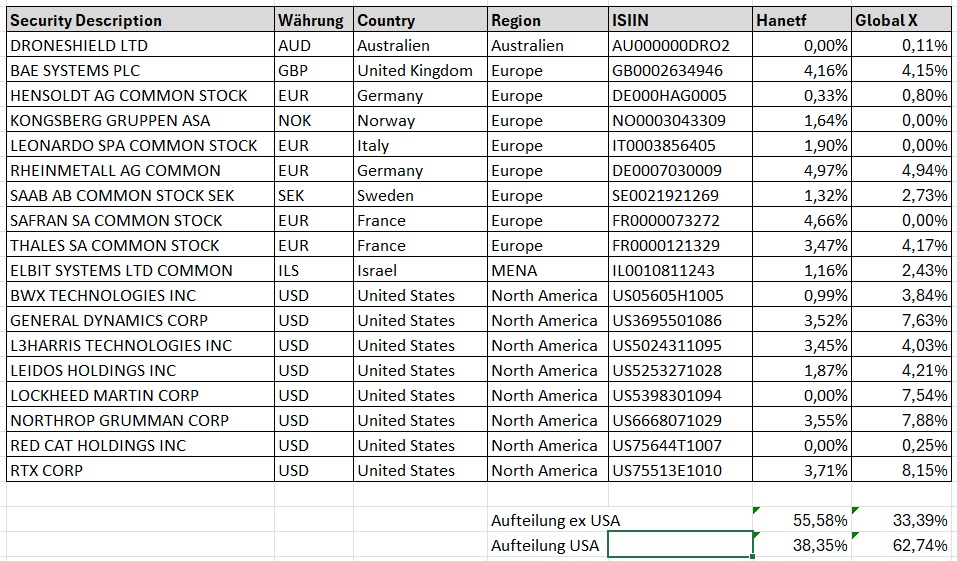@Mister_ultra and I were just discussing defense ETFs in another thread. Unfortunately, I don't know how else to present the comparison (Excel) here, so here it is as an image.
I have listed all the positions of the individual ETFs, but have manually selected the companies that we (I) have defined in detail as real defense companies. I have not evaluated tech/software/cybersecurity here.
The comparison concerns the $ASWC (+1,48 %) and the $ARMG (+3,12 %) .
My conclusion is that both are almost equal when all positions of the two ETFs are compared. In this particular comparison, the $ARMG (+3,12 %) is more US-heavy, but this is also due to the fact that the TOP defense companies (Lockheed, RTX, Northrop) simply come from the USA.
The $ASWC (+1,48 %) is moving a little more in the EU direction. This is where I see the potential, as NATO really needs to catch up here. The return on investment could be $ARMG (+3,12 %) higher, as the NATO countries will certainly also buy from US companies.
I just wanted to share my research with you.

Best regards
Daniel






